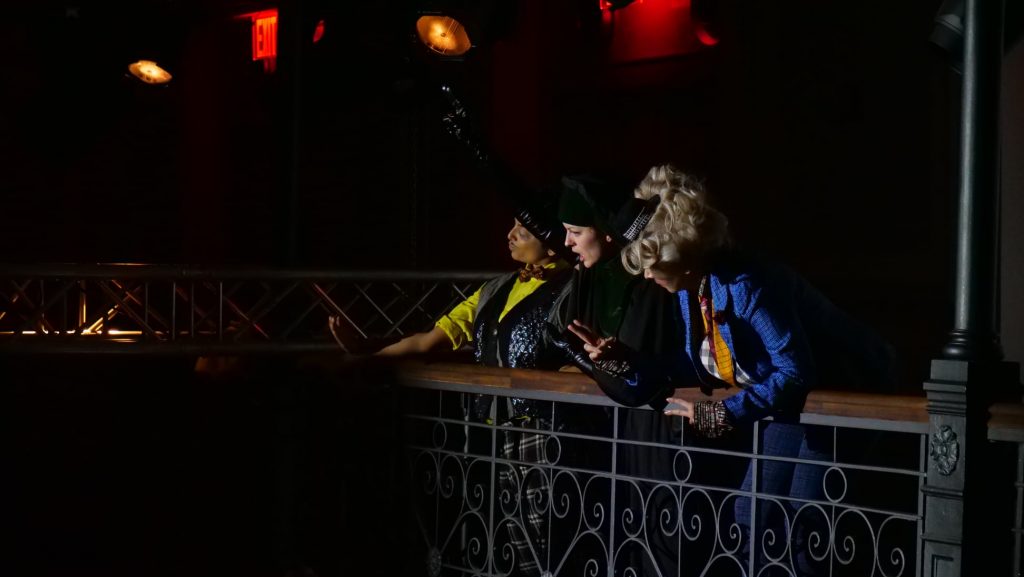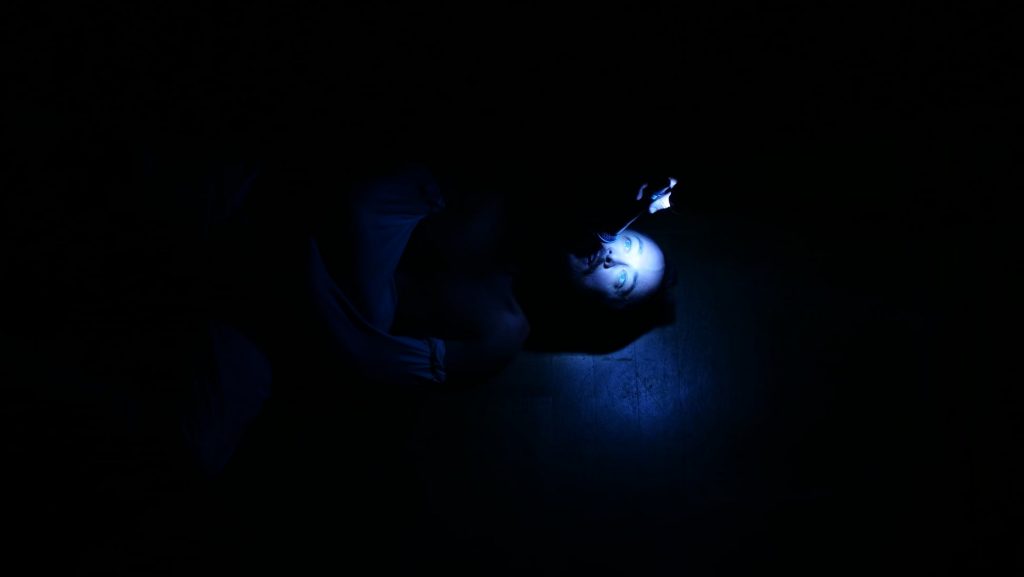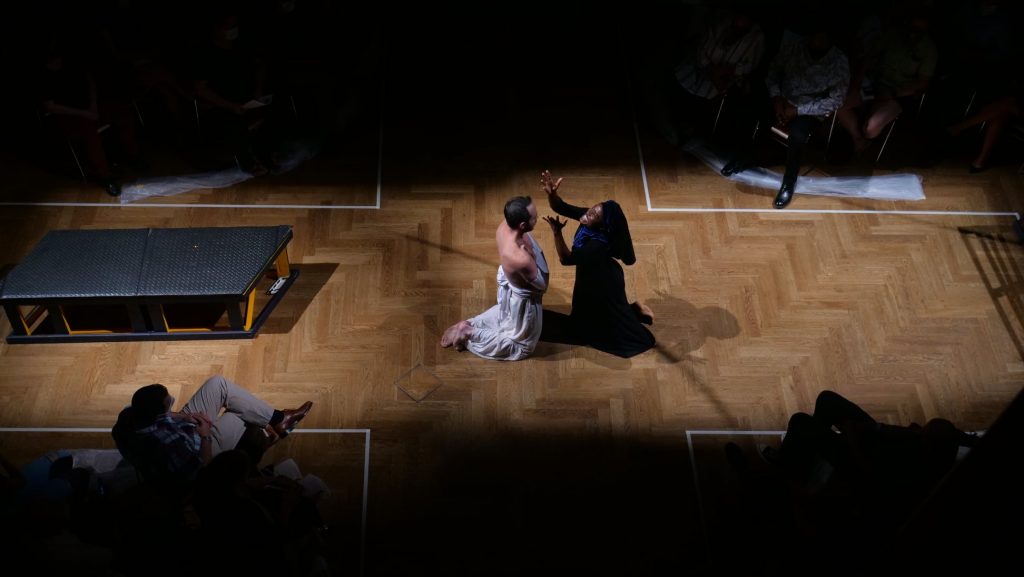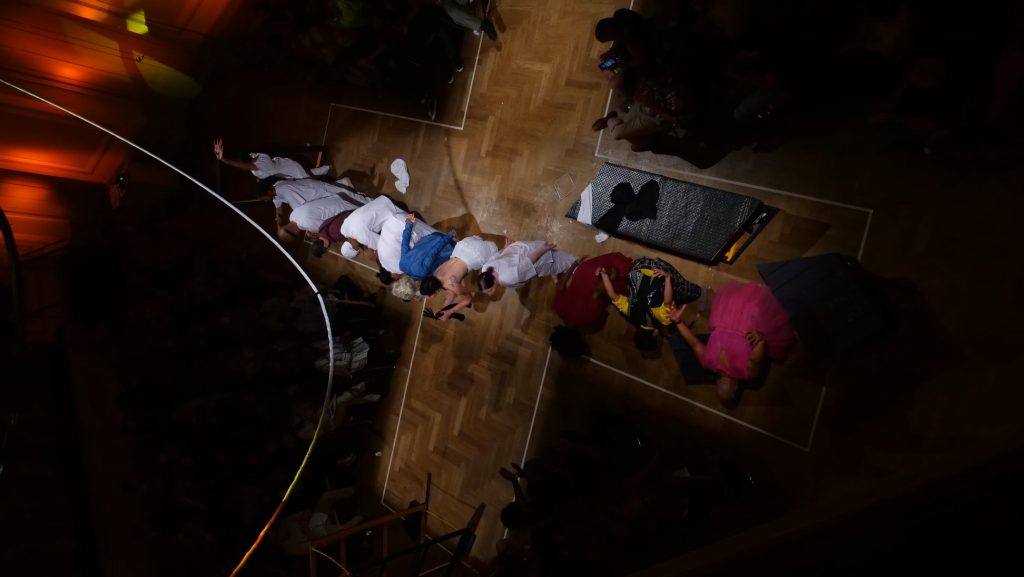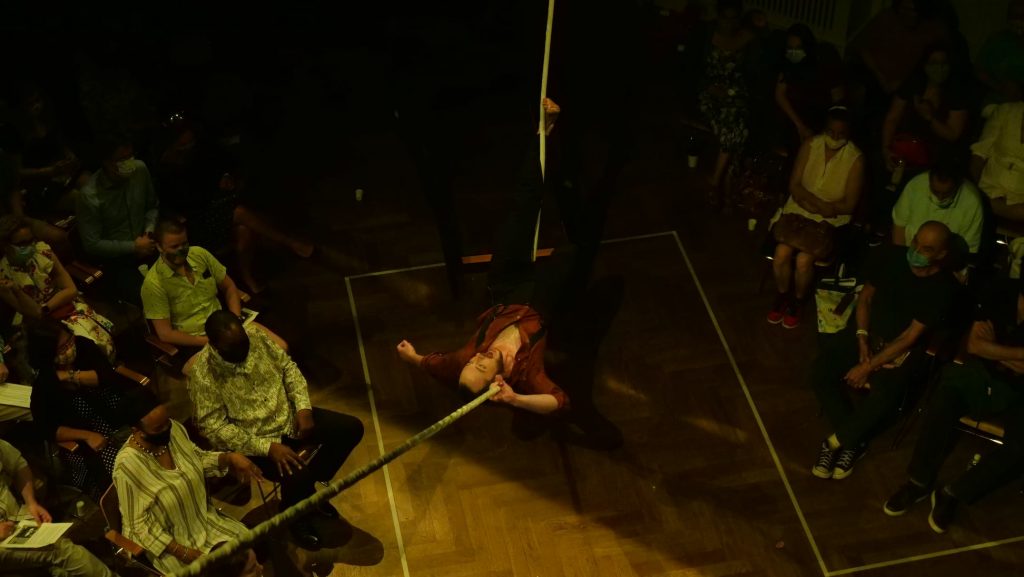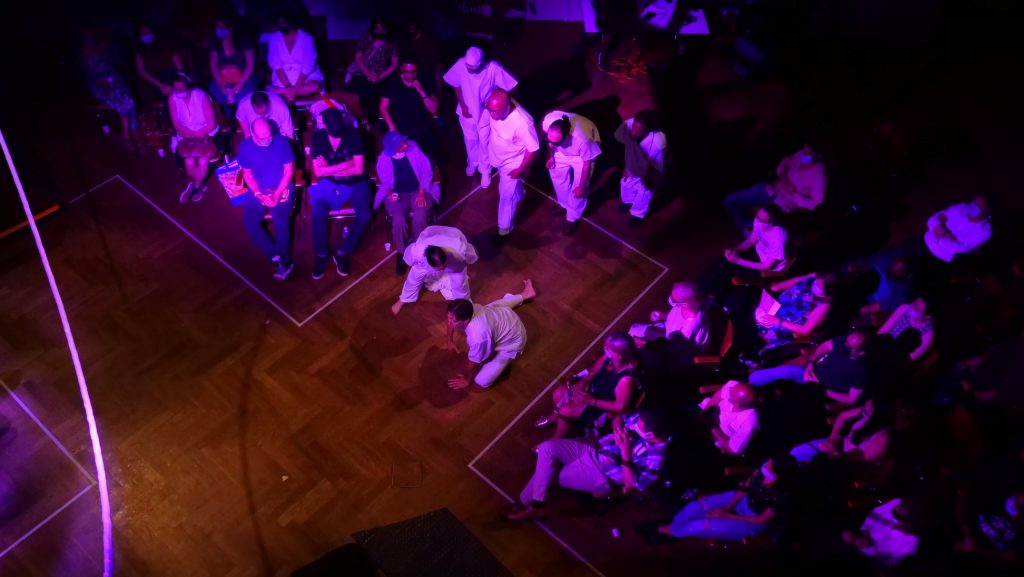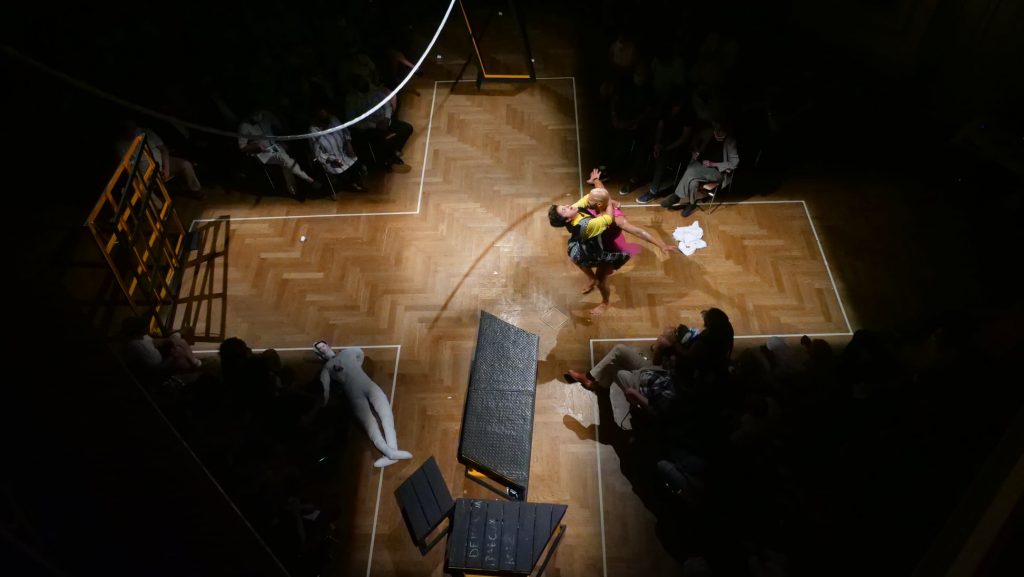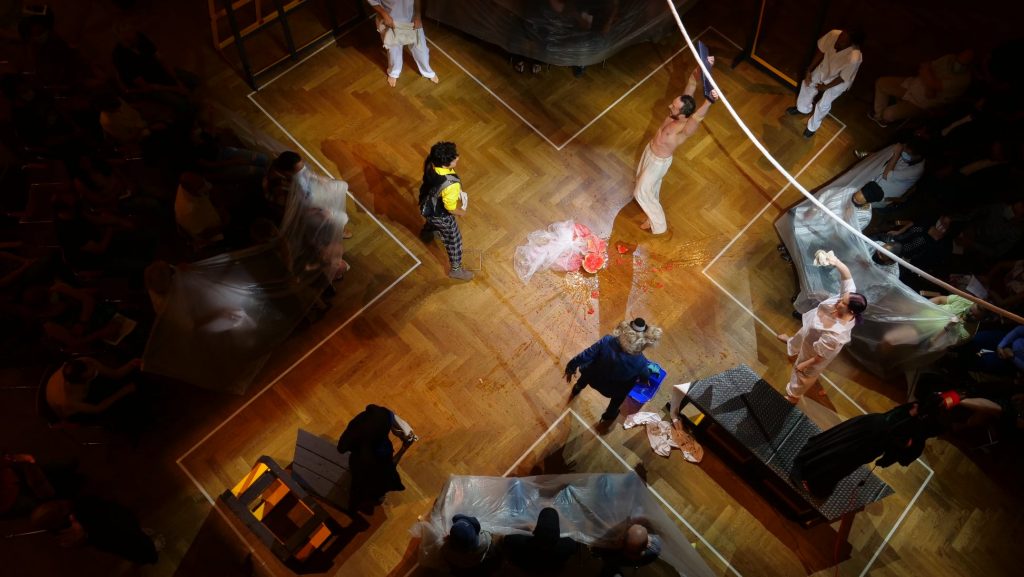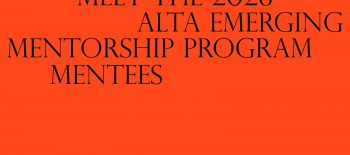RSVP: Saturday, June 26 at 8:00-9:30 PM EDT
cancelled: Monday, June 28 at 8:00-9:30 PM EDT
The Madman and the Nun explores the tyranny of society over the individual as well as the boundaries of sanity. Sounds familiar? The play can be seen as an absurdist comedy in which science, religion, and the state form a totalitarian alliance to bring about enforced happiness and social tranquility by means of psychiatric confinement. It is “dedicated to all the madmen of the world.”
In Stanislaw Ignacy Witkiewicz’s The Madman and the Nun (1923), Walpurg, an acclaimed poet, is bound in a straitjacket in an insane asylum, his voice silenced by an even more insane bureaucracy of scientists and religious authorities. Whether Walpurg is a visionary or a hack is irrelevant, for in Witkiewicz’s view, any artistic impulse “happens almost always on the very edge of madness.” The asylum is run by lunatics. A nun is a creature of carnal passions. Murder is a cure for a murderer’s madness. The Madman and the Nun is about an artist’s struggle to maintain his sanity in an insane world. On several occasions, Walpurg attempts to reveal to the audience that society is a soulless machine. This is the universe in which Walpurg finds himself, a universe full of inexplicable uncertainties. The artist by definition is self-destructive on a cosmic scale.
The Madman and the Nun (1923), Poland. Playwright: Stanislaw Ignacy Witkiewicz. Direction and choreography: Daniel Irizarry. Cast: Nicole Betancourt (Dr. Jan Bidello), Ishani Das (Dr. Ephraim Grün), Michael Leonard (Alexander Walpurg), Axh Marie (Sister Barbara), Folami Williams (Sister Anna), Daniel Irizarry (Professor Walldorf).
Set designer: Ozlem Gezgin. Set builder: Zilvinas Jonusas. Lighting design: Christina Tang. Music director: Desmar Guevara. Music: Troy “Mobius” Simms. Costume design: James Terrell. Produced by: Brooke Bell, and Tomek Smolarski. Presented by: One-Eighth/Daniel Irizarry Theater, Polish Cultural Institute New York. Translated by Daniel. C. Gerould and C.S. Durer.
Rehearsal for Truth 2021
Free and open to the public. Suggested donation $10. RSVP through Eventbrite is required.
Due to COVID-19 restrictions for indoor events, seating capacity is limited and on first-come first-served basis. Reservations must be made in advance. Wearing a face mask is required. No tickets will be available at the door, and anyone who has not received pre-event confirmation will be turned away. Read about Festival Safety Protocol.
RSVP: Saturday, June 26 at 8:00-9:30 PM EDT
cancelled: Monday, June 28 at 8:00-9:30 PM EDT
Polish avant-garde playwright Stanislaw Ignacy Witkiewicz (1885 –1939), known as “Witkacy,” may well have been Europe’s most radical novelist, dramatist, painter, and philosopher in an era when artists competed fiercely to break away from all that had come before. Writing in Polish yet banned in Communist Poland, Witkacy may not have gained the international attention of the Surrealists, Dadaists, or other Absurdists, but his work remains a striking example of modernism. Witkacy wrote over 30 plays between 1918 and his suicide in 1939. Despite his productivity, he was practically ignored in his time and left behind no direct disciples, yet mysteriously, has gone on to stir up more excitement among young playwrights than practically any other 20th-century writer, Eugene O’Neill notwithstanding. His influence is perhaps amplified by the enthusiasm of European scholars, but his status as progenitor of the Avant Garde is undeniable. His plays were rediscovered in the 1950s and ‘60s, when they were hailed as precursors of the European theatrical movement known as the Theater of the Absurd. Witkiewicz is known for his outrageously extravagant scenes influenced by all kinds of occultisms and philosophical speculations.
RSVP: Saturday, June 26 at 8:00-9:30 PM EDT
cancelled: Monday, June 28 at 8:00-9:30 PM EDT
